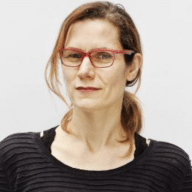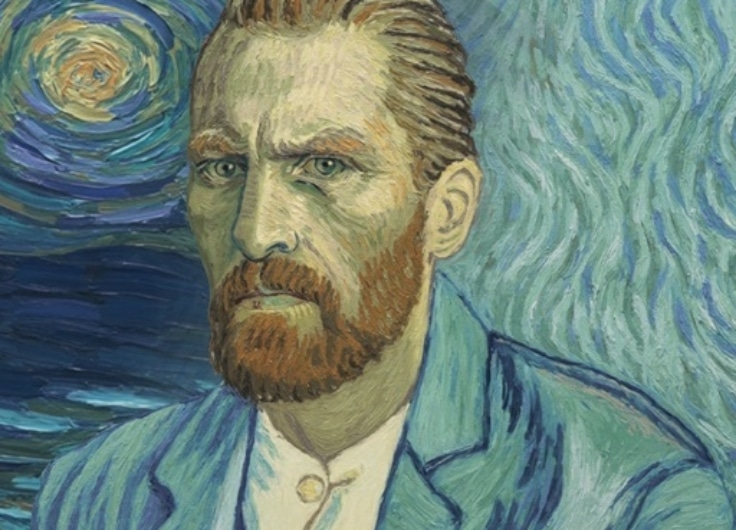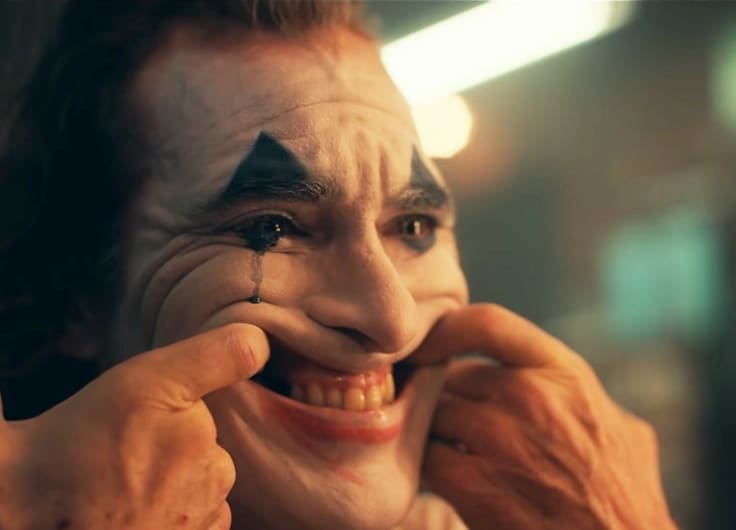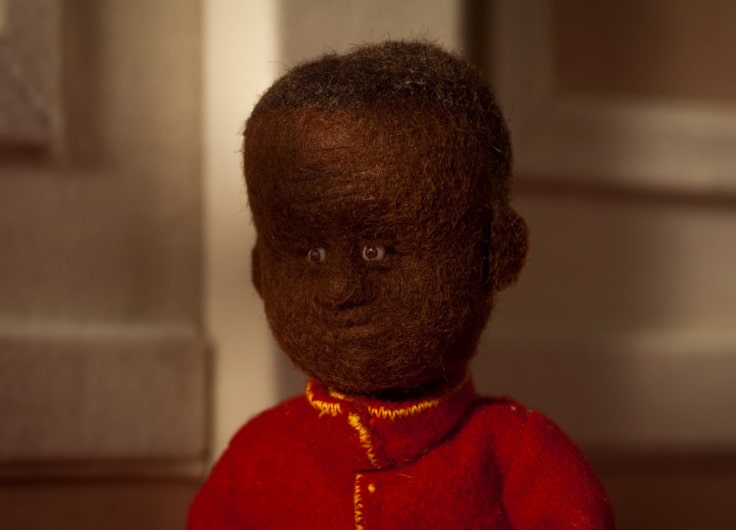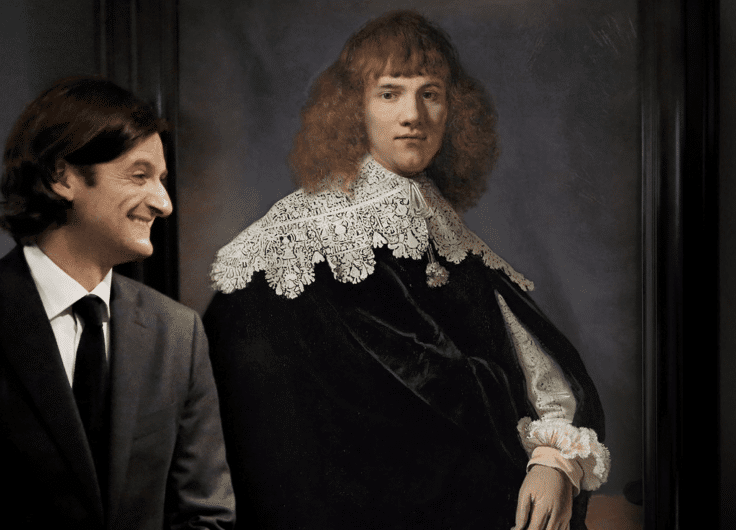When Taking Your Time Takes a Long Time. The Documentary ‘100UP’ by Heddy Honigmann
What is it that makes people get out of bed day in, day out for over a century? This is the question documentary filmmaker Heddy Honigmann asks seven quirky centenarians in her new film 100UP.
In the bustling heart of New York, a little old man with a zimmer frame begins to cross a wide and deafeningly busy street. First, he passes through the parked cars. Then right past the high nose of a monstrously large truck. He looks up briefly to check that the high-seated driver has spotted him. Then he trundles on, as determined as a crab crossing the beach. Cars whizz by left and right. Somebody sounds their horn. Between all this industrial metal and forbidding concrete, the stooped figure looks like a relic from a long-gone age.
People who resist the forces of time, that have already been up and at it for over a century: what makes their lives worthwhile? What gets them out of bed day after day? This is the subject of 100UP, the latest documentary by the Peruvian-Dutch Heddy Honigmann (1951), who turns 70 herself in autumn 2021. The title immediately calls to mind the famous television series 7 Up by British filmmaker Michael Apted (1941). In these programmes, Apted visited the same group of fourteen people, all from very different social backgrounds, to see what had become of their lives and dreams. The final edition was 63 Up (2019). Apted died at the beginning of 2021, at the age of 79.
With Honigmann’s seven centenarians, the emphasis lies less with social backgrounds than it does with the larger issues of life that have so often shaped her work: life, love and death. But other abstractions like time, loss and curiosity also play important roles here. Honigmann captures time in eye-catching daily occurrences like crossing the street, meltwater that thunders from the side of a mountain, or the repotting of growing plants. Next to chit-chatting women in a sunny park, she shows a group of sparrows sat on a little gate, shaking out their feathers. Alongside the histories of the lives she portrays, she offers the image of wool being spun into thread. Beyond the beauty of the ordinary, soberly filmed cameraman Adri Schrover, the way in which Honigmann puts her images to work symbolically is remarkable; it is in these symbolic reflections that the connections between the many conversations she has with her protagonists take shape.
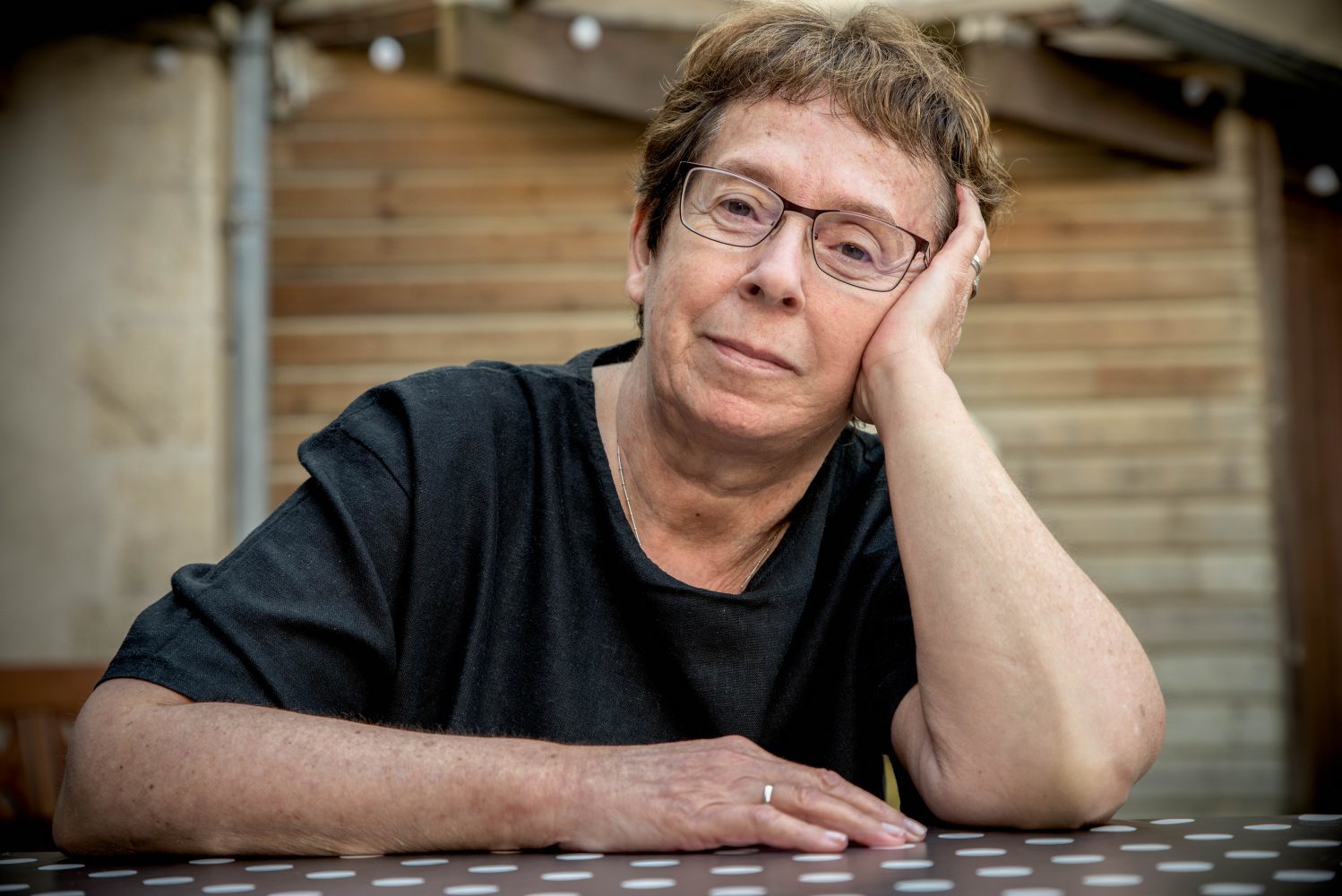 Peruvian-Dutch documentary filmmaker Heddy Honigmann
Peruvian-Dutch documentary filmmaker Heddy HonigmannHonigmann meets her centenarians in their own habitat, following their daily routines, and is present at a few of their birthdays. She talks to them about their lives while keeping her eyes peeled. With her open attitude, Honigmann catches life as it unfolds in front of her eyes.
This is how we meet four women and three men in 100UP. They live in the Netherlands, Norway, the United States and Peru. We meet New York sex therapist Shirley Zussman, Norwegian farmer Laila Myrhaug, comedian Irwin Corey (the Professor), drummer Viola Smith, former Olympian Hans Maier, Holocaust survivor Mathilde Freund and Peruvian doctor Raul Jerí. Honigmann was not looking for a cross-section of centenarians worldwide but followed her interests, which as always, produces fascinating cinema.
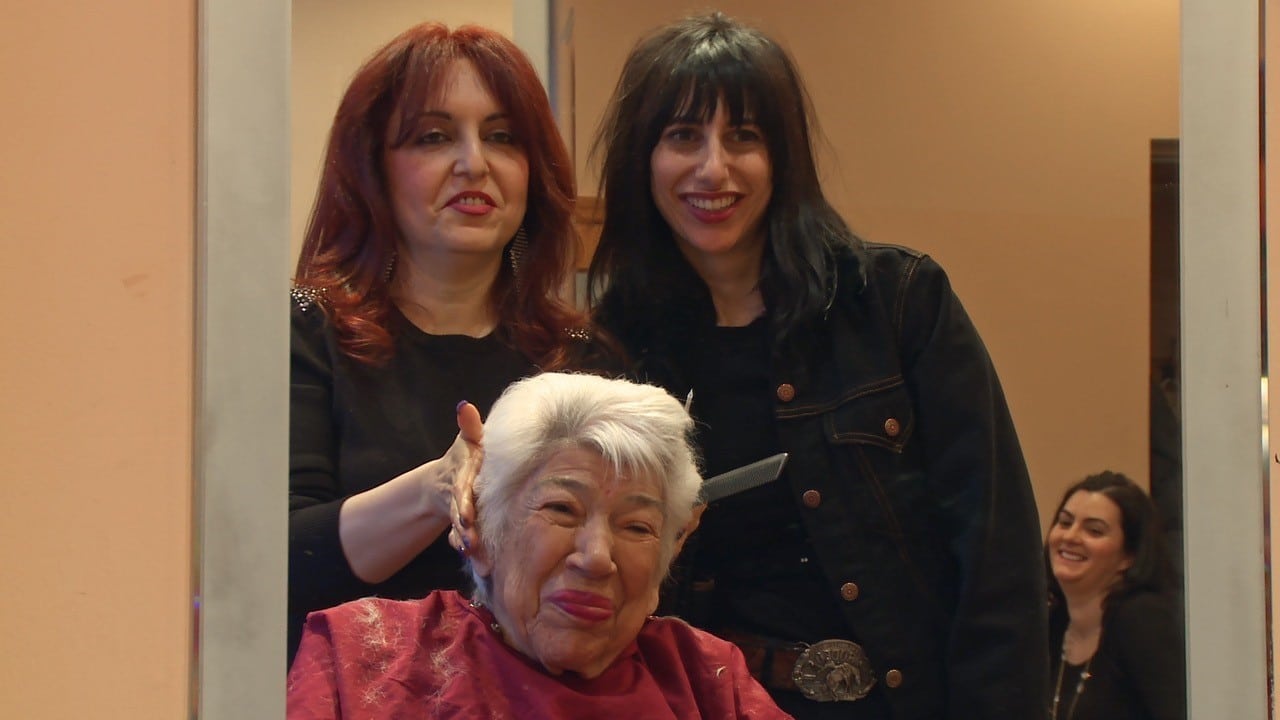 The New York sex therapist Shirley Zussman
The New York sex therapist Shirley ZussmanFor a while, it looked as if 100UP wouldn’t be realised, when the Netherlands Film Fund judged the project to be too risky. Not because of the possible death of the centenarians, but because of Honigmann’s free way of working: without a predetermined result. Let that be the core of her voyages of discovery, and of life itself: encounters without predictable outcomes.
100UP is an invitation to a conversation, an exploration that leads to different insights, and to life wisdom that can differ greatly from person to person. Honigmann’s portraits show just how we do life. Every day again. It means relating to your environment and to your past, even if you only want to live in the now or take each day as it comes. Whether you are a farmer on a Norwegian fjord who helps bring little lambs into the world. Or a former drummer from New York listening to a colleague. Or a sex therapist who observes how people try to cope with loneliness.
Honigmann captures time in eye-catching daily occurrences
Just like the filming, it turns out that to live is to take risks; that there are always surprises. The greatest danger in the lives of these centenarians proves to be falling over. Yet every day they all get out of bed, and most of them embrace life and also leave the house. Some go to the park or go to a cafe to meet others, the Peruvian doctor still goes to a hospital to help patients, the Vienna-born Holocaust survivor attends film lectures in her current hometown of New York, can be found at a local garage sale. For others, life comes to visit them at home. A resident of The Hague works with an assistant on a manifesto of universal human duties that will allow us to take better care of the earth. Having a goal and having contact with others are the most important things that keep him going.
Sitting in his large, comfortable chair, comedian Irwin Corey is joined by his son and still tells jokes every day. We see him handing out cigarettes to his audience in an old black and white television appearance from long ago: “Live! Live!”, he calls out to the people. Life is also the right to destroy yourself, to act irresponsibly, to enjoy without calculation. Wild and incongruous. In short, life is a barrel full of contradictions. There is no recipe for it. Just as there’s no recipe for ageing. One life is not the other.
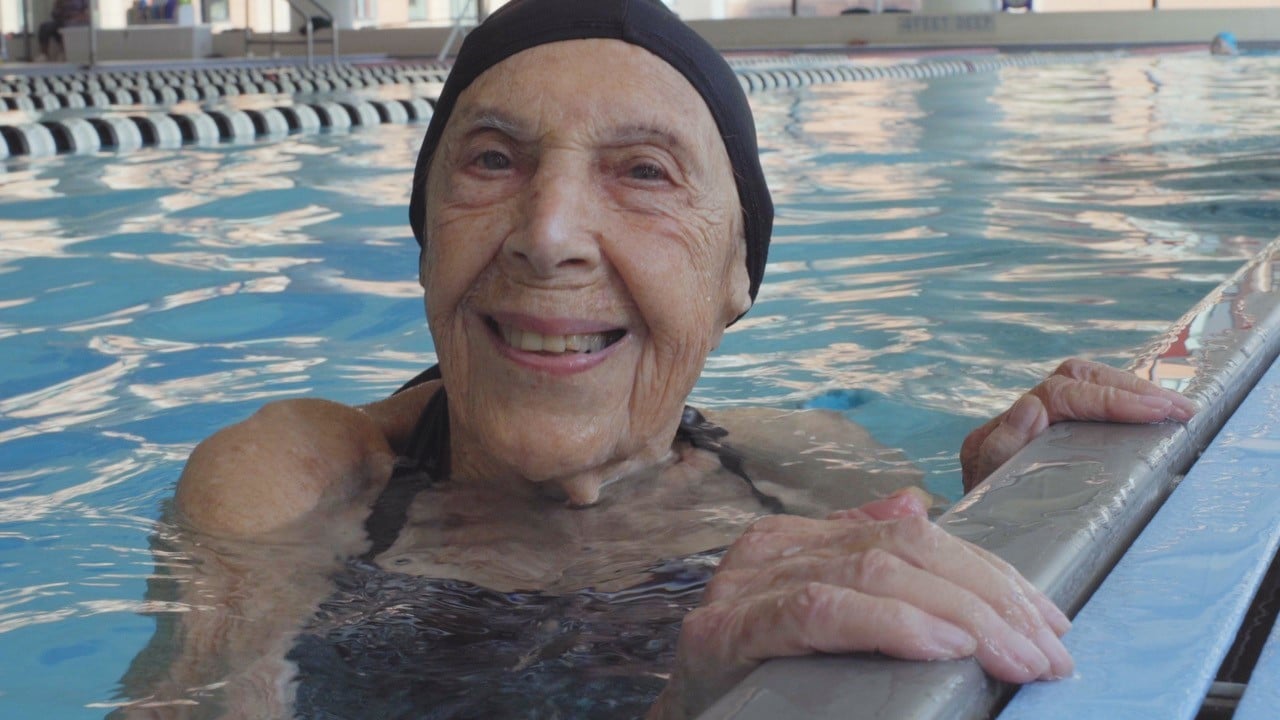 Holocaust survivor Mathilde Freund
Holocaust survivor Mathilde FreundThe dark side of reaching old age is also discussed – suffering loss. With the loss of your physical abilities, you also lose a bit of yourself, says Zussman. Corey finds the loss of friends and being alone miserable. From time to time Honigmann weaves the past with the present. The Vienna-born Holocaust survivor sings operas to keep her history alive and to feel good. The only things Hitler couldn’t take from her, she says, were her musical training and her memories. And so she thinks about her murdered husband and cherishes the notes he made in the margins of the sheet music he played. She enjoys a cold shower after a swim, the taste of avocados. Another of the film’s characters reads Liz Taylor’s biography, makes observations about current affairs, makes plans, knits socks, wants to be of use, tells jokes. Everyday actions in which the value of existence manifests itself; whatever winding path you take. It is the love of life itself that drives these centenarians.
It is the love of life itself that drives these centenarians
At the same time, the tragedy of this Honigmann story is that while this discussion takes place, it turns out that the major themes – life, love and death – are under threat right now. The Norwegian farmer, whose feet are closely connected to the earth – wearing her self-knitted socks made from the self-spun wool of her own sheep – sees the insects and birds disappear from her surroundings. Sex therapist Shirley Zussman sees death banished from life through the glorification of eternal youth. And love? It is trapped by narcissism, the pressure to perform and the long working day. And so life itself is violated.
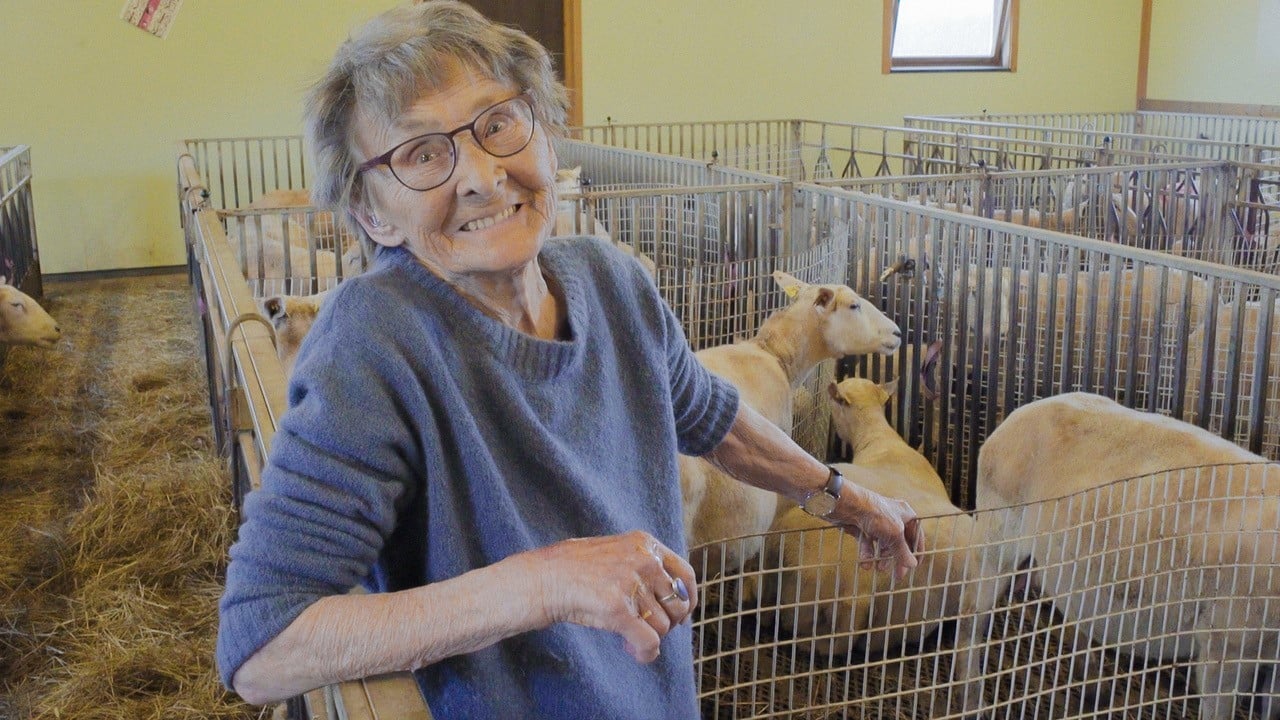 The Norwegian farmer Laila Myrhaug
The Norwegian farmer Laila MyrhaugHere also, time appears to be the deciding factor. Time to slow down, to find your own rhythm, to trundle across the proverbial highway of everyday life. Zussman puts it like this: “The life we lead means we don’t have time for the need to get close to someone, spend time together, to be available.” But Honigmann does take that time and treats the viewer to a rare pleasure.

